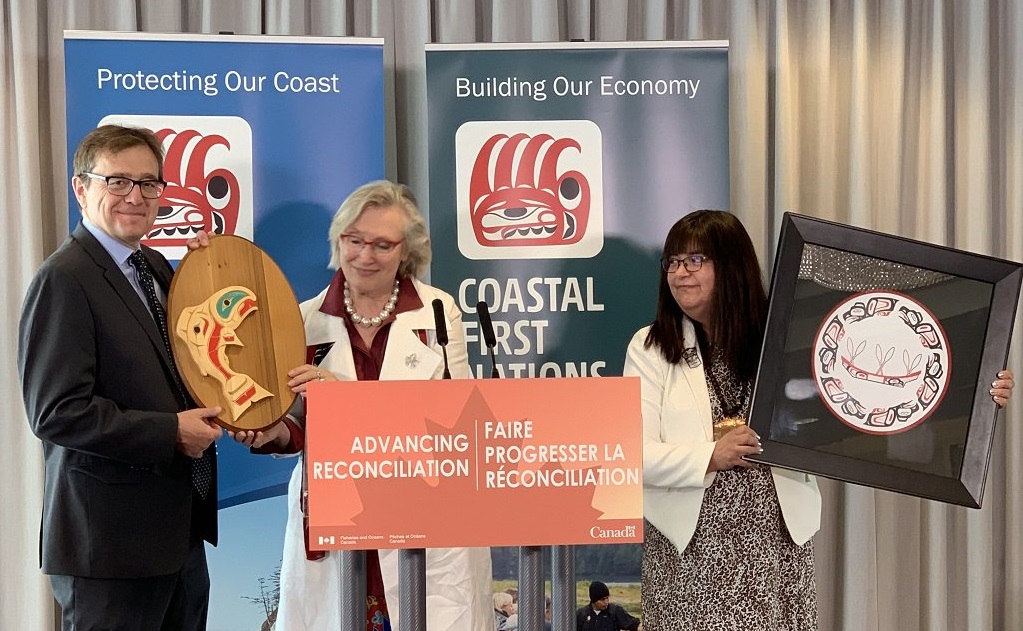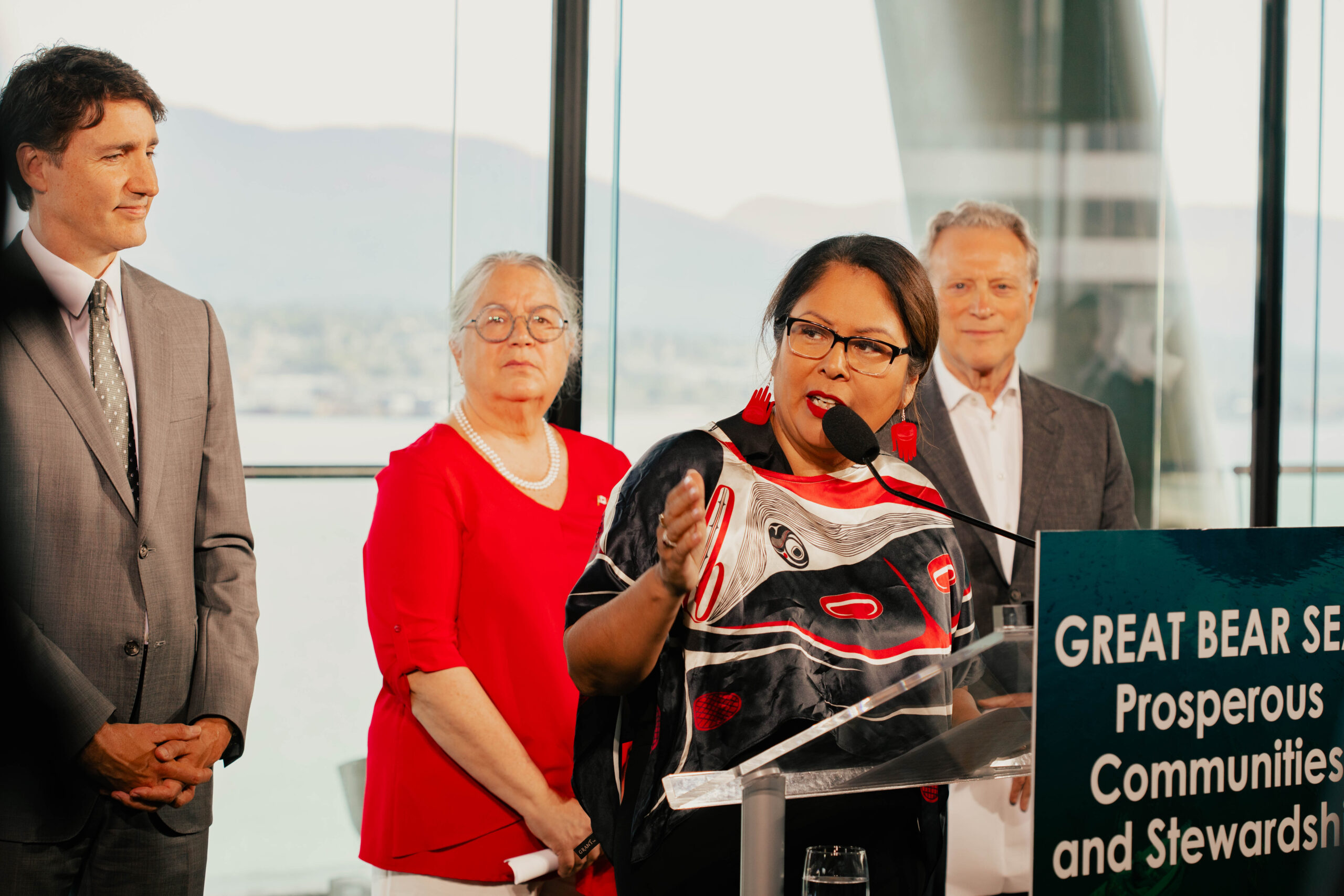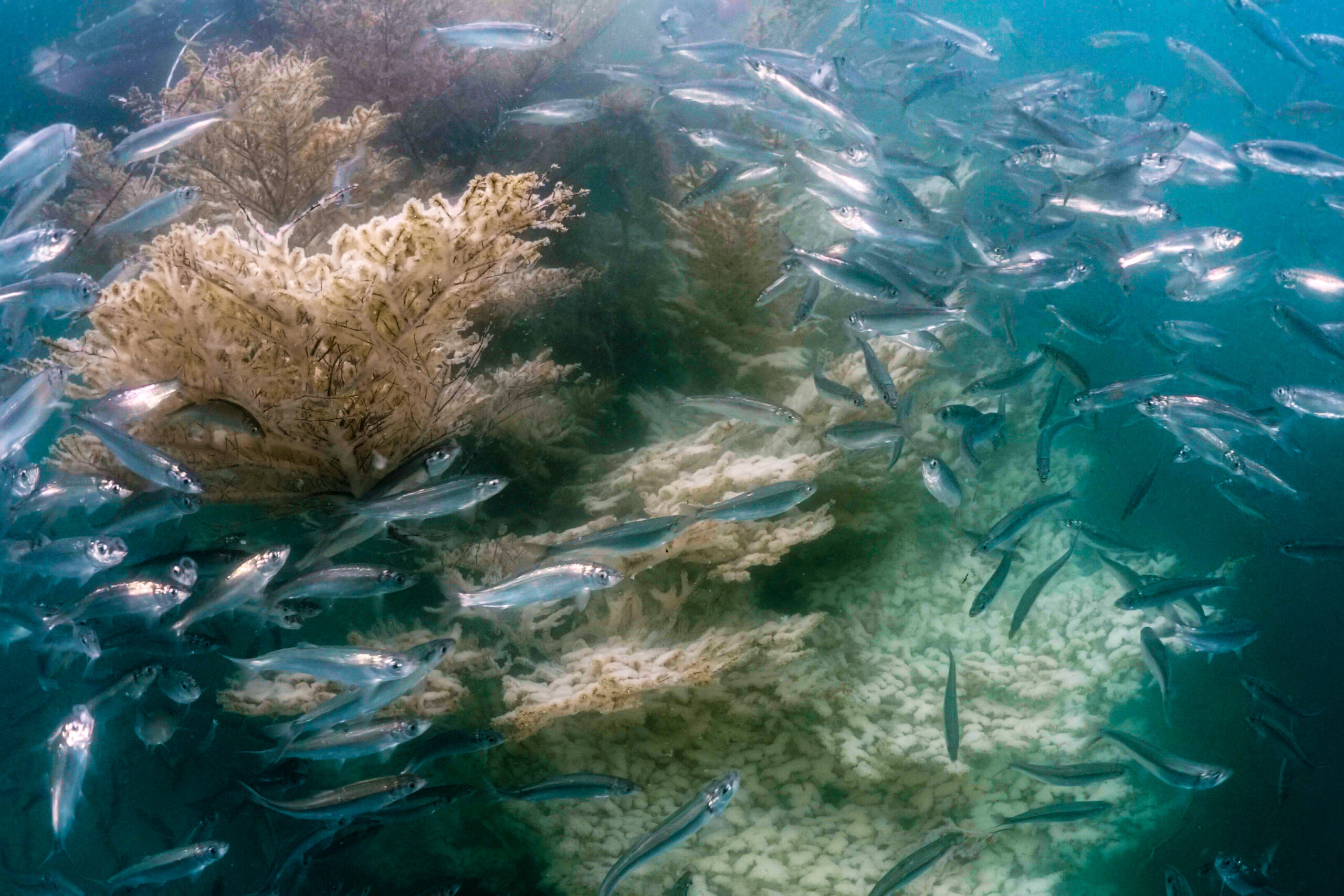Vancouver, BC – There is no relationship more important to the Government of Canada than the one with Indigenous peoples. We are committed to advancing a renewed relationship with Indigenous communities based on the recognition of rights, respect, cooperation, and partnership. Canada is working to modernize and strengthen nation-to-nation, government-to-government structures, and through this, to support the First Nations-led development of new economic opportunities, including in the fisheries.
Today, the Minister of Fisheries, Oceans and the Canadian Coast Guard, the Honourable Jonathan Wilkinson, the Minister of Crown-Indigenous Relations, the Honourable Carolyn Bennett, Chief Marilyn Slett, President of the Coastal First Nations, along with representatives from the other six Nations, participated in a signing ceremony of the Coastal First Nations Fisheries Resources Reconciliation Agreement. This agreement will advance economic opportunities and collaborative governance, as well as expand community-based commercial fishing access in traditional territories for the seven Nations represented by Coastal First Nations.
This agreement will facilitate an enhanced role in collaborative governance, and in fisheries management and decision-making processes for the Coastal First Nations, whose territories make up 40 per cent of British Columbia’s coastal waters. Moving forward, this will enable better access to existing fishing licenses and quota through a voluntary relinquishment process – creating jobs and generating income for these north and central coast communities. This will also allow for the development of new partnerships and enhanced relationships with the private sector to get the fish caught in these communities to market.
In real terms, the agreement could result in a significant job creation in the communities and a substantial increase to household incomes in these communities from the growth of community-based commercial fishing operations. The economic growth projected from the agreement means more people will be able to stay in their communities to work, secure a good, stable, income to support their families, and re-invest the profits generated from fisheries back into the community.
Coastal First Nations will have better access to existing commercial fishing licenses and quota, and an enhanced role in fisheries governance. However, as with all fisheries in Canada, overarching management and associated decisions remain with the Department of Fisheries and Oceans. We will continue to work with communities and stakeholders not represented by the Coastal First Nation to include their views and concerns into all fisheries management decisions.
When we change the dial from a top-down approach to engagement with First Nations and fisheries access, to a focus on the co-development, co-design, and co-delivery of resource management, the result is a move toward self-determination, and real, sustainable prosperity for Canada’s First Nations.
Quotes
“This historic agreement is the result of years of collaborative work to strengthen relations between the Government of Canada and Coastal First Nations members. The agreement marks a critical step forward and underscores the government’s commitment to ensuring the growth and sustainability of community-based fisheries. In partnership with Coastal First Nations, we are advancing collaborative fisheries management on the north and central coast of our province to best support the prosperity of these coastal communities.”
The Honourable Jonathan Wilkinson, Minister of Fisheries, Oceans and the Canadian Coast Guard
“Fish are central to the culture and livelihood of many First Nations on the coasts. That is why it is so important to work collaboratively and conclude agreements such as this one that advance fisheries management and recognize the critical partnership role that First Nations communities like Coastal First Nations need to play. Increasing access to economic opportunities on the north and central coasts supports healthy and self-reliant coastal First Nation communities.”
The Honourable Carolyn Bennett, Minister of Crown-Indigenous Relations
“This agreement will get families and fishers back on the water and re-establish a small boat fleet in our communities. By working together – on a nation-to-nation basis – we will provide opportunities for our communities to fully participate in the fishing economy; create new jobs and investments; and increase economic opportunities and build capacity.”
Chief Marilyn Slett President, Coastal First Nations
Quick facts
- The seven participating Coastal First Nations are the: Heiltsuk Nation, Kitasoo/Xai’xais First Nation, Metlakatla First Nation, Nuxalk Nation, Wuikinuxv Nation, Gitga’at First Nation and Gitxaala Nation. They are located in the central and north coasts of British Columbia.
- In June 2018, the Prime Minister signed the Reconciliation Framework Agreement for Bioregional Oceans Management and Protection with 14 BC Coastal Nations, including these 7 Coastal First Nations. This Framework Agreement promotes a more coordinated and efficient approach for the governance, management, and protection of oceans in the Pacific North Coast, including marine ecosystems, marine resources and marine use activities.
- The goals of the Agreement signed today include, increased commercial fishing opportunities; community based fisheries capacity for First Nations on the north and central coasts of British Columbia; and the establishment of a collaborative governance and management arrangement that will involve other First Nations and stakeholders.
- The Coastal First Nations Fisheries Resources Reconciliation Agreement will provide support for First Nations access to fisheries licenses and quota while also leveraging income generated through a corporate fishery model to support community-based fisheries.
- Increased access to licenses and quotas for the Coastal First Nations will come from existing licenses that are currently issued to retired or soon to retire fishers and operators.


